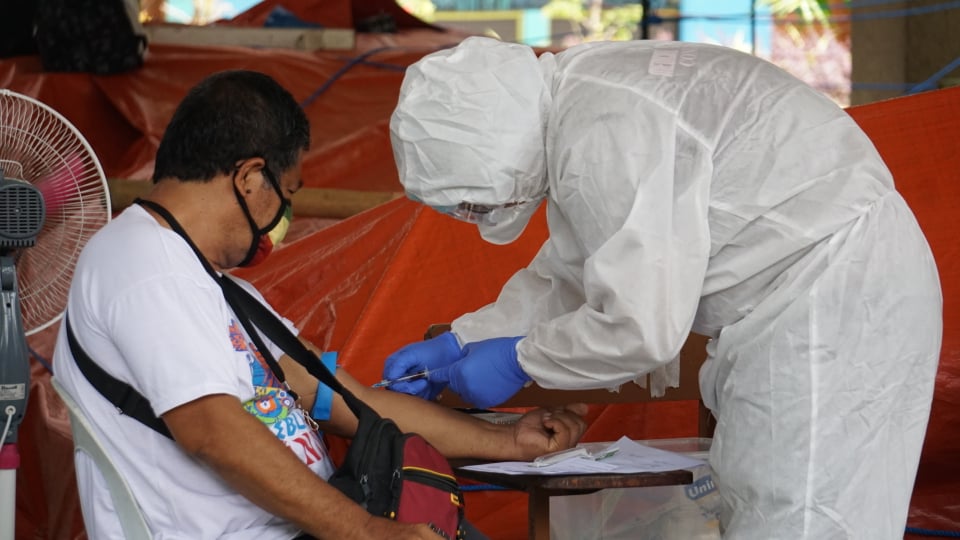DOH-7: 15K samples from rapid test in Cebu City enough for data analysis

A medical volunteer takes a blood sample from a Barangay Tisa resident on May 7. The DOH-7 says that Cebu City has gathered enough samples for them to have a data analysis. | CDN Digital file photo
CEBU CITY, Philippines—A day after the minority bloc in the Cebu City Council questioned the methodology of the mass rapid testing being conducted in the tri-cities of Cebu, Mandaue, and Lapu-Lapu, the Department of Health in Central Visayas (DOH-7) said that the city already achieved 85.6 percent of its target.
DOH-7’s statement came after the mass testing ended in the three cities today, May 21, 2020. Out of the 17,536 targeted sample, Cebu City collected only 15,012 samples from 78 barangays.
One of the concerns of the City Council’s minority bloc is that without reaching 100 percent of the target of the mass testing, The DOH-7 will not have sufficient scientifec basis for determining the extent of the spread of the coronavirus.
Read more: Cebu City minority bloc questions scientific basis of rapid testing
Yet Dr. Mary Jean Loreche, DOH-7 chief pathologist, said that achieving 85.6 percent or 15,012 samples collected were already enough to derive a data analysis.
She said the sample size was already enough for them to create a projection on the spread of the virus.
Loreche also emphasized that the rapid antibody test was not the sole basis for the data, as it is coupled with the polymerase chain reaction (PCR) test.
The PCR serves as the confirmatory testing for the sample that proved positive to the rapid antibody tests.
“We always said that we will approach this in a two-pronged manner, the rapid test and the PCR,” said Loreche.
Loreche also said that the precision of the rapid antibody test was enough for the data the DOH-7 would need for the projection of the spread of the virus.
The DOH-7 assured the public that the rapid antibody test data would help provide scientific evidence for the local government units on how to deal with the pandemic./dbs
Disclaimer: The comments uploaded on this site do not necessarily represent or reflect the views of management and owner of Cebudailynews. We reserve the right to exclude comments that we deem to be inconsistent with our editorial standards.
